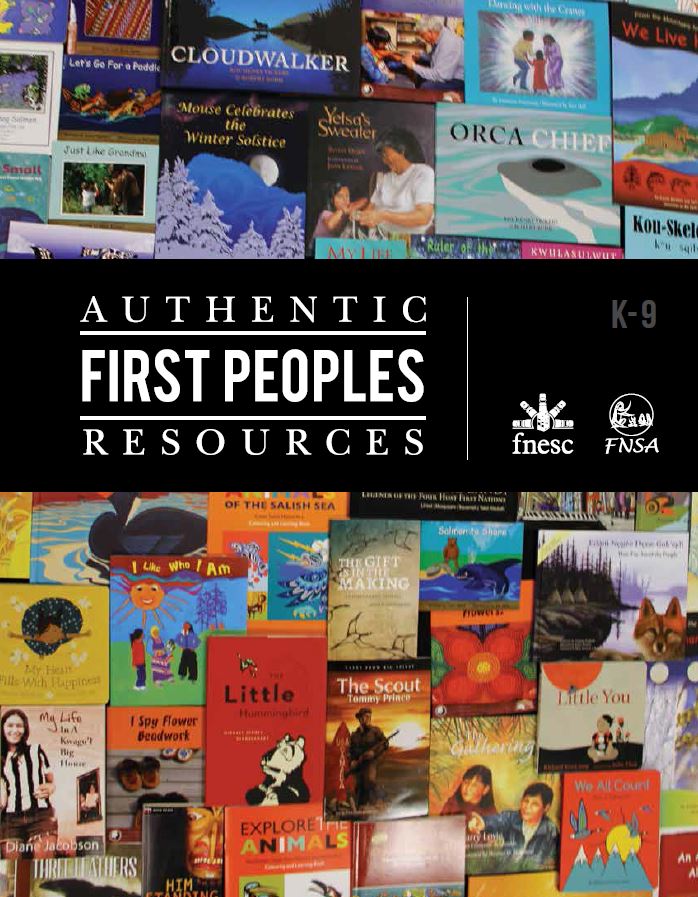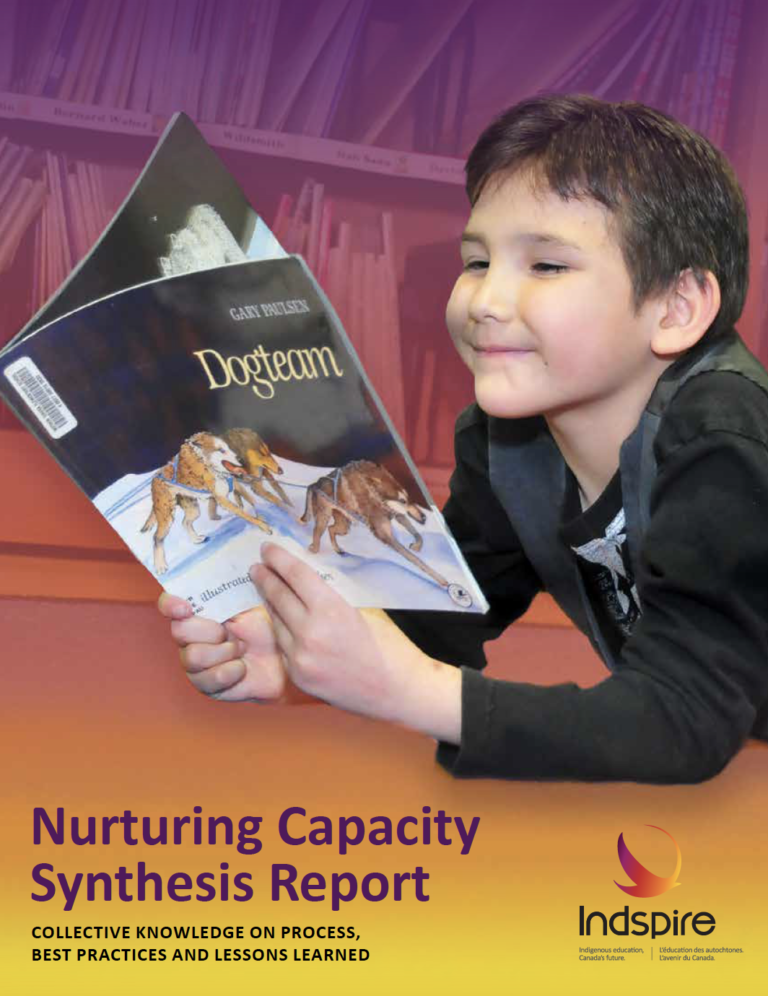Indigenous Pedagogies
"Indigenous peoples have drawn on specific pedagogies to transmit Indigenous knowledges. While Indigenous pedagogies differ across Nations and locations, a number of similarities exist that will be developed in this topic. These timeless pedagogies engage learning processes and practices that can be used in the classroom."
(From Teaching for Indigenous Education).
This page features a range of pedagogy and curriculum resources, including lesson plans, recommended resources, bibliographies, and search tips.
A Note on Pedagogy and Materials
While we endeavor to incorporate an extensive and current collection of resources related to Indigenous Education in this research guide, it is important to remember that this is still a small field of study, and that it might be hard to find the exact resource you need. In these situations we recommend researching around the area or age range of resources available, finding ways to alter them to meet your educational needs and, if possible, making the resources you create public so that future educators can build on them in turn.
Featured Resources

Shared Learnings: Integrating BC Aboriginal Content K-10
Shared Learnings is a teacher's guide for integrating Aboriginal content into the BC curriculum in ways that reflect Aboriginal concepts of teaching and learning. It includes content specific to grades, grade clusters, and subject areas in addition to sample lessons plans, recommended resources, and instructional strategies.
Available online and in print from Xwi7xwa Library.
Call number: ET B758 S33 2006.
FNESC and FNSA
Working together, the First Nations Education Steering Committee (FNESC) and the First Nations Schools Association (FNSA) offer online curriculum resources, including materials on Indian Residential Schools and Reconciliation.
FNESC: Learning First Peoples Classroom Resources
FNSA: Curriculum and Resources

Teaching for Indigenous Education
From Indigenous Education at UBC and developed by Jan Hare, this website offers a digital learning resource aimed at "supporting the teaching and professional development of educators in Aboriginal/Indigenous education". Divided into eight sections, the site explores: Relationships, Knowledge, History, Pedagogy, Curriculum, Community, Languages, and Transformation.

The Assembly of First Nations developed this toolkit as part of a comprehensive strategy to reach out to First Nations students, teachers, schools, communities and the wider public. The resource is comprised of 21 modules designed to bring together First Nations and non-First Nations people and foster a spirit of cooperation, understanding, and action.

Authentic First Peoples Resources
This guide from the First Nations Education Steering Committee (FNESC) and First Nations Schools Association (FNSA) is intended to "help BC educators introduce resources that reflect First Peoples knowledge and perspectives into classrooms in respective ways." The guide consists of annotated resource listings as well as a sample evaluation form, index, and list of publishers and distributors.

First Peoples Principles of Learning
This website, run by ts'msyen educator Jo Chrona, was created to help educators in BC incorporate the First Peoples Principles of Learning (FPPL) into their classrooms and schools. The site features resources offering educational and contextual information about the FPPL, including a professional development lesson plan for educators, as well as links to other online resources.

Creating Racism-Free Schools through Critical/Courageous Conversations on Race [PDF]
This document is aimed at supporting schools, teachers, parents, and students to undertake critical conversations on racism and create inclusive classrooms for First Nation, Métis, and Inuit students. The document describes the levels and effects of racism, acknowledges history, stimulates dialogue through critical and courageous conversations, and contributes to the TRC's Call to Action.

Nurturing Capacity Synthesis Report from Indspire
This report includes findings from 59 projects across Canada focused on education initiatives that supported the needs of First Nations, Inuit and Métis students across Canada. Many of the projects focused on more than one student population. Nurturing Capacity Program projects were implemented within elementary schools (kindergarten to Grade 4), middle schools (Grades 5–8) and high schools (Grades 9–12). As seen in our student populations, many of the projects focused on more than one education level.
Introductory Resources
-
First Nations Studies 12 (BC Ministry of Education)Curriculum for First Nations Studies 12.
-
First Nations in British Columbia (BC Archives)Introduction to researching First Nations history in British Columbia, including extensive bibliography.
-
Kids' Stop (Aboriginal Affairs and Northern Development Canada)Games, worksheets and classroom resources. Ages 4-16.
Curriculum Development Resources
-
Indigenous Education Strategy (Ontario)Resources to help teachers incorporate Aboriginal perspectives into Grade 1-12 classrooms.
-
Indigenous Worldviews and Perspectives in the Classroom: Moving Forward (BC Ministry of Education)Provides context and support in incorporating Aboriginal perspectives into the classroom. Developed in alignment with the Truth and Reconciliation Commission Calls to Action and revised BC curriculum.
-
BCTF Aboriginal Education Lesson PlansIncludes lesson plans for multiple disciplines with Aboriginal content.
-
Canadian Indigenous Books for Schools (Association of Book Publishers of BC)A catalogue of books with authentic Indigenous voice, defined as books either written by Indigenous authors, or in consultation with the Indigenous communities or people mentioned to ensure the content is correct and appropriate to be published.
-
First Nation science (First Nation Education Steering Committee)Provides educators with resources to support increased integration of the rich body of First Peoples (unappropriated) knowledge and perspectives into classrooms and schools in BC.
-
First Nations Pedagogy OnlineComprehensive web resource that provides best practices and support for online learning initiatives that are intended for aboriginal students, elders, educators, curriculum developers, and educational leaders.
-
Historic Canada: Residential Schools in CanadaResource for intermediate-secondary schools on the topic of residential schools; includes guides with activities.
-
The Great Bear Sea Educational CurriculumThe Exploring the Great Bear Sea Elementary, Secondary and Post-Secondary Curriculum Resources are based on the film The Great Bear Sea: Reflecting on the Past, Planning for the Future by Green Fire Productions, and can be used to engage students in an inquiry-based, educational journey through the Great Bear Sea
-
Think Before You Appropriate GuideProvides advice on why and how to avoid misappropriation, and underlines the mutual benefits of responsible collaborations with Indigenous artists and communities.
Resources from School Districts
-
Argyle Secondary Indigenous People Research GuideOnline resources and links for K-12 educators, including lesson plans, bibliographies, book choices, and grade-based resources. Created by Argyle Secondary School in North Vancouver in Musqueam Territory.
-
Indigenous Education Teacher Resources (Comox Valley School District 71)Online resources and links for K-12 educators, including lesson plans, bibliographies, grade-based resources; and specific support resources for educators in School District 71.
